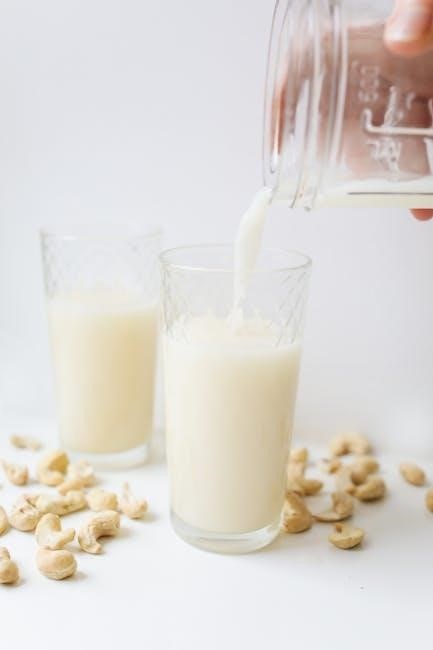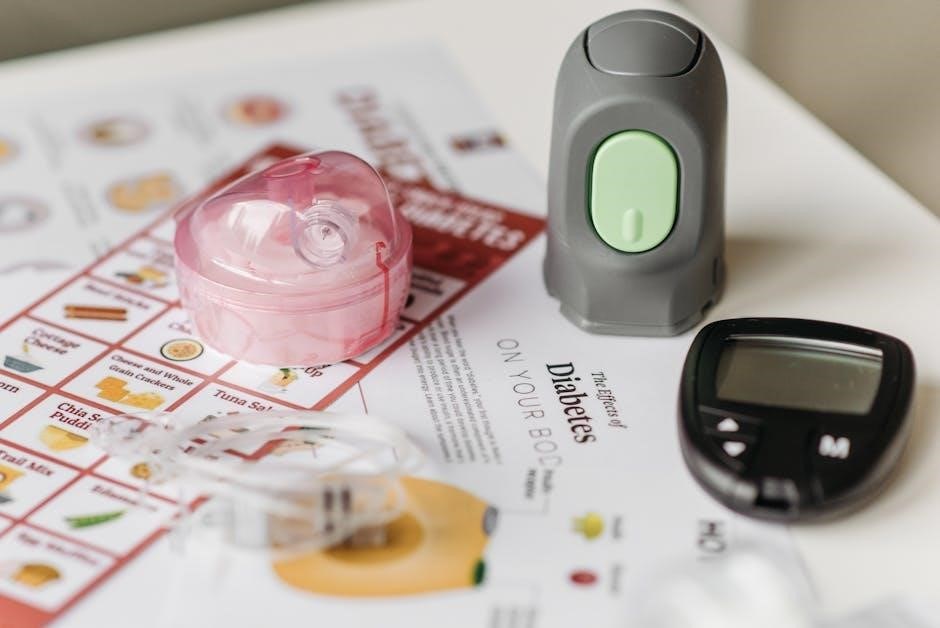Diet for dialysis patients requires careful planning and monitoring, with
specific guidelines
to ensure optimal nutrition and health, using online resources like diet for dialysis patients pdf for guidance always.
Importance of Nutrition for Dialysis Patients
Nutrition plays a crucial role in the overall health and well-being of dialysis patients, with a well-planned diet helping to manage the disease and its complications. According to online resources, including diet for dialysis patients pdf, a balanced diet provides the necessary nutrients, vitamins, and minerals to maintain optimal health. A healthy diet can help to slow the progression of kidney disease, reduce the risk of complications, and improve overall quality of life. Proper nutrition can also help to manage symptoms such as fatigue, weakness, and nausea, which are common in dialysis patients. Additionally, a healthy diet can help to support the immune system, reducing the risk of infections and other complications. By following a carefully planned diet, dialysis patients can help to manage their condition, improve their health, and enhance their overall well-being. With the help of online resources and healthcare professionals, dialysis patients can develop a personalized diet plan that meets their unique needs and promotes optimal health. Proper nutrition is essential for dialysis patients to maintain their health and well-being.
Role of Diet in Managing Kidney Disease
Diet plays a vital role in managing kidney disease, with a well-planned diet helping to slow the progression of the disease. According to diet for dialysis patients pdf, a diet low in sodium, phosphorus, and protein can help to reduce the strain on the kidneys. A healthy diet can also help to manage blood pressure, blood sugar, and cholesterol levels, which are all important for kidney health. By making dietary changes, individuals with kidney disease can help to reduce their risk of complications and slow the progression of the disease. Online resources, such as diet for dialysis patients pdf, provide guidance on making healthy dietary choices and developing a personalized diet plan. Healthcare professionals can also provide guidance and support to help individuals with kidney disease make informed dietary decisions. With the right diet and lifestyle changes, individuals with kidney disease can help to manage their condition and improve their overall health. A healthy diet is essential for managing kidney disease and promoting overall well-being. Proper dietary management can help to improve kidney function and reduce the risk of complications.

Nutritional Requirements for Dialysis Patients
Nutritional needs vary for dialysis patients, requiring personalized diet plans for optimal health always.
Protein Intake for Hemodialysis Patients
Protein intake is crucial for hemodialysis patients, with recommended daily intake ranging from 1.2 to 1.3 grams per kilogram of body weight. This is because protein helps to build and repair muscle tissue, which can become damaged during dialysis. A high-protein diet can help to promote healing and reduce the risk of malnutrition. However, it is essential to note that excessive protein intake can put a strain on the kidneys, so patients must work with their healthcare team to determine the optimal protein intake for their individual needs. According to online resources, such as diet for dialysis patients pdf, patients can consume protein-rich foods like lean meats, fish, and eggs, as well as plant-based options like legumes and nuts. A balanced diet that includes a variety of protein sources can help to ensure that patients are getting the nutrients they need to stay healthy. By following a personalized diet plan, hemodialysis patients can help to manage their condition and improve their overall quality of life. With proper nutrition, patients can reduce their risk of complications and promote overall health and well-being.

Phosphorus and Potassium Restrictions
Dialysis patients must limit their intake of phosphorus and potassium to prevent complications. Phosphorus can build up in the blood and cause damage to bones and organs, while excessive potassium can lead to heart problems. According to diet for dialysis patients pdf, patients should aim to limit their phosphorus intake to 800-1000 mg per day and their potassium intake to 2000-3000 mg per day. This can be achieved by avoiding foods high in these minerals, such as dairy products, nuts, and dried fruits. Patients can also take phosphorus binders with meals to help reduce phosphorus absorption. It is essential to work with a healthcare team to develop a personalized diet plan that takes into account individual nutritional needs and restrictions. By following these guidelines, dialysis patients can help to manage their condition and reduce their risk of complications. A balanced diet that limits phosphorus and potassium intake can help to promote overall health and well-being, and online resources like diet for dialysis patients pdf can provide valuable guidance and support. Patients can also consult with a registered dietitian for personalized nutrition advice.

Meal Planning for Dialysis Patients
Meal planning involves creating a personalized diet plan using online resources like diet for dialysis patients pdf to ensure optimal nutrition always with specific guidelines.
Food Choices and Restrictions
Food choices play a crucial role in managing dialysis, with certain restrictions in place to ensure optimal health. According to online resources like diet for dialysis patients pdf, patients should limit their intake of foods high in sodium, phosphorus, and potassium. A balanced diet that includes foods from all major food groups is essential, with a focus on whole, unprocessed foods. The typical American diet contains 80-100 grams of protein per day, which may need to be adjusted for dialysis patients. Additionally, certain foods like liver, starfruit, and licorice should be avoided altogether. By making informed food choices and following specific guidelines, dialysis patients can help manage their condition and improve their overall health. A well-planned diet can also help reduce the risk of complications and improve quality of life. With the help of online resources and healthcare professionals, patients can create a personalized meal plan that meets their unique needs and requirements.
Managing Metabolic Acidosis through Diet
Metabolic acidosis is a common complication in dialysis patients, and diet plays a crucial role in managing this condition. According to diet for dialysis patients pdf, a diet low in acid-producing foods and high in alkaline-producing foods can help mitigate metabolic acidosis. Foods such as fruits, vegetables, and whole grains can help increase alkalinity, while foods like meat, poultry, and fish can increase acidity. Patients can also benefit from limiting their intake of processed and high-phosphorus foods, which can exacerbate metabolic acidosis. By making dietary changes and working with a healthcare team, patients can help manage metabolic acidosis and reduce the risk of complications. A well-planned diet can also help improve overall health and quality of life. Online resources like diet for dialysis patients pdf can provide patients with the information and guidance they need to make informed dietary choices and manage metabolic acidosis effectively. With the right diet and treatment plan, patients can better manage their condition and improve their overall health outcomes. Proper nutrition is essential for managing metabolic acidosis.

Benefits of a Healthy Diet for Dialysis Patients
A healthy diet improves overall health and well-being for dialysis patients using diet for dialysis patients pdf guidelines always.
Improving Appetite and Nutritional Status
Improving appetite and nutritional status is crucial for dialysis patients, and a well-planned diet can help achieve this goal. According to diet for dialysis patients pdf, a balanced diet that includes foods from all major food groups can help improve appetite and nutritional status. A diet that is high in protein and calories can help to promote weight gain and improve overall health. Additionally, a diet that is low in phosphorus and potassium can help to reduce the risk of complications. It is also important to stay hydrated by drinking plenty of water and other fluids. By following a healthy diet and staying hydrated, dialysis patients can improve their appetite and nutritional status, which can help to improve their overall health and well-being. A healthy diet can also help to reduce the risk of malnutrition, which is a common problem in dialysis patients. With the right diet and lifestyle changes, dialysis patients can improve their health and quality of life.
Reducing Risk of Complications and Improving Quality of Life
A well-planned diet can help reduce the risk of complications and improve quality of life for dialysis patients, as outlined in diet for dialysis patients pdf. By following a diet that is low in phosphorus, potassium, and sodium, patients can reduce their risk of developing complications such as heart disease and stroke. A healthy diet can also help to improve blood pressure control and reduce the risk of fluid buildup. Additionally, a diet that is high in fiber and antioxidants can help to reduce inflammation and improve overall health. By making healthy lifestyle changes, including following a healthy diet, dialysis patients can improve their quality of life and reduce their risk of complications. This can include making changes to their diet, increasing physical activity, and managing stress. With the right diet and lifestyle changes, dialysis patients can improve their health and well-being, and reduce their risk of complications. A healthy diet is an important part of overall health and well-being for dialysis patients.
